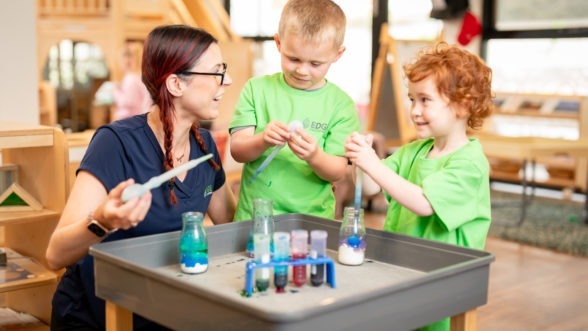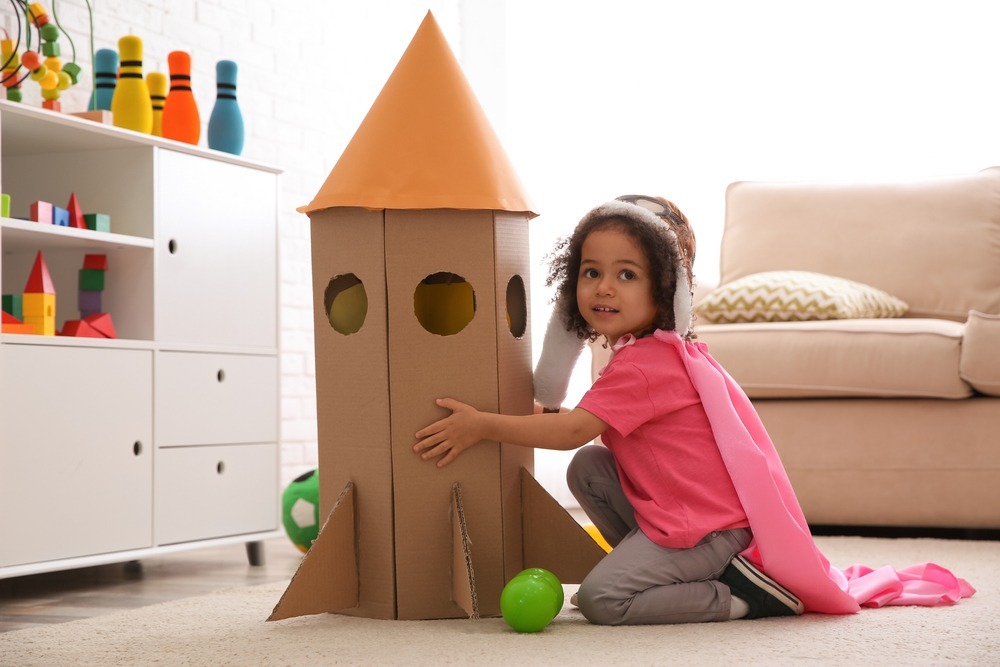
Education, Top News
Education
11 October, 2025

Imaginative play is simply playing “make-believe” or pretend. It’s using your imagination to role-play different situations. It may look just like playing but pretend play provides an abundance of learning opportunities for children.
Children learn through many different types of play in early childhood. Imaginative play has a range of benefits. It gives children the opportunity to make sense of the world by experimenting with different scenarios. It helps their cognitive development and creativity as they use their imaginations to solve problems and decide how to act in different situations.
Pretend play helps children to develop social and emotional skills. When children play imagination games with other children, or with adults, they learn to listen to their peers, communicate, negotiate and take turns. Playing a role can also help children develop empathy as they try to imagine how that person would feel, talk and act.
Listening in on children’s pretend play can be pretty cute, as children will often mimic their parents, older siblings or other people they have observed. Children can also reveal new language or behaviour. Participating in imaginative play can be a wonderful opportunity for parents to guide children in their thinking or encourage positive behaviour.
So when does imaginative play start? You can start encouraging imaginative play for toddlers as soon as they seem ready. There are many easy ways to introduce a child to imaginative play at home, including:
Imaginative play is so important that we provide children with opportunities to engage in it every day at Edge Early Learning. If you’d like more tips to encourage pretend play at home, speak to your child’s educator and we can let you know what your child leans towards playing while at Edge. We’re always happy to support more learning through play!